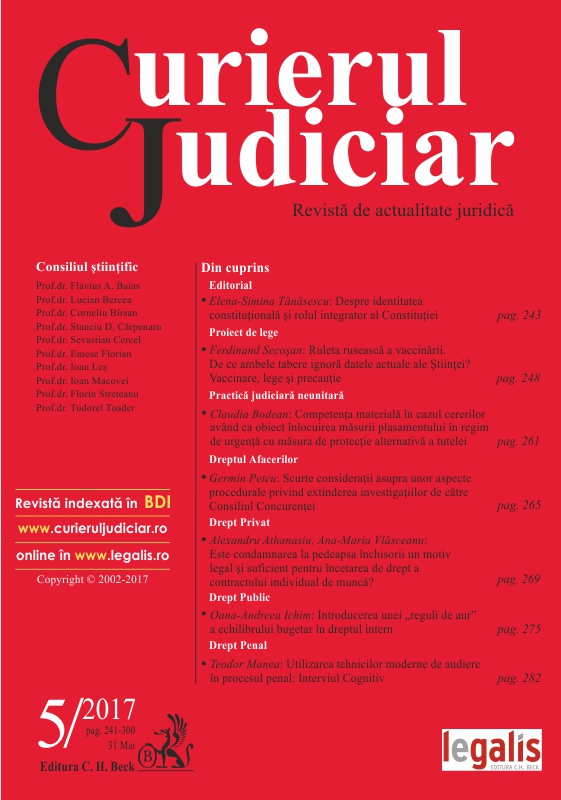Utilizarea tehnicilor moderne de audiere în procesul penal: Interviul Cognitiv
The Practical Application of neoteric hearing techniques in the penal process: the Cognitive Interview
Author(s): Teodor ManeaSubject(s): Law, Constitution, Jurisprudence
Published by: C.H. Beck Publishing House - Romania
Keywords: witness hearing; hearing techniques; cognitive interview
Summary/Abstract: The presence of indicatory praxis has unearthed a chain of problematic issues that tend to become apparent during witness hearing sessions within the penal process, issues that can ultimately result in fallacious decisions delivered by the court. Considering the essence of our discussion we could start by building a condense list of these issues: the natural imperfection of the human mind which results into real difficulties for a witness to accurately and completely capture the facts; the recurrent ineffectual manner in which judicial bodies often build their relationship with the witness, failing to construct a real connection based on trust, resulting into a witness with an increased level of stress furthering hampering him from accurately and completely describing the facts; the fact that sometimes the judicial body employs futile hearing technics that undesignedly guide the testimony in certain directions deluding the witness with false memories or inhibiting the memory and presentation of valuable pieces of information. We noticed that the last two problems that we mentioned in our summary list have been given particular attention, resulting into an important build up of professional and scientific literature that present multiple methodologies for the development of a hearing, among which, probably the most widely used being the cognitive interview. This method connotes the creation of a personal connection with the witness, while employing four techniques that significantly cultivate the capacity of the person to recollect to a higher degree of correctness elements of the event such as context recreation, exhaustive description, presenting facts from different moments in time (in another order than the natural order) and the changing of the perspective. The cognitive interview is largely used within the international community and the tests that have been performed proved in their entirety its efficiency, including those that targeted the use of shorter variants of the test obtained by cutting-out some of its specific methods.
Journal: Curierul judiciar
- Issue Year: 2017
- Issue No: 05
- Page Range: 282-286
- Page Count: 5
- Language: Romanian
- Content File-PDF

